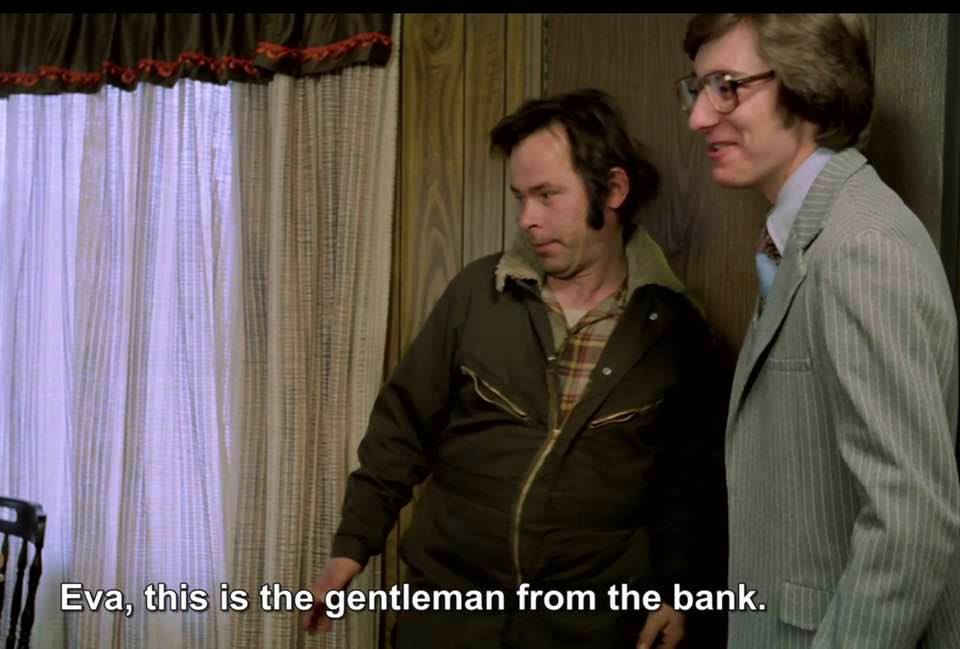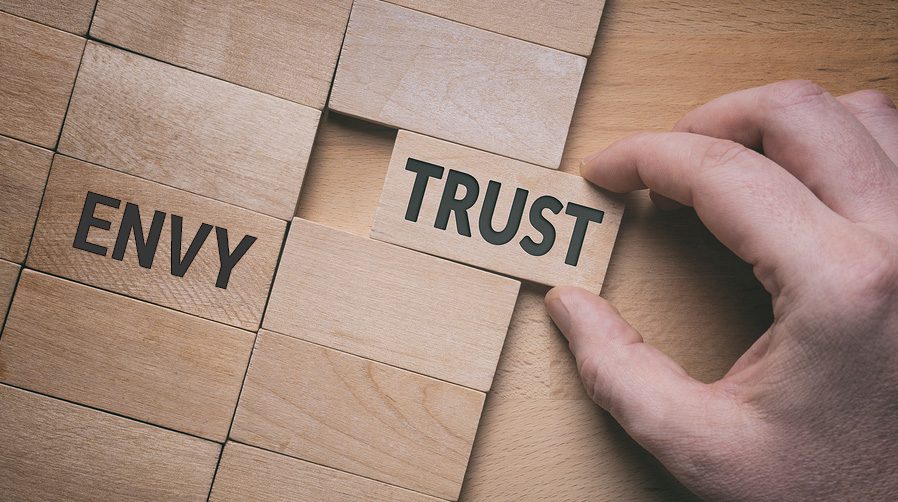
Mar 7, 2021 | Business Distinction, Leadership, Sales & Retail
I was in the audience when it happened.
It was 1978… Kansas City, Missouri’s Municipal Auditorium… the National FFA Convention… and, the speaker was Paul Harvey. The presentation title was, “So God Made a Farmer.”
Audio from this speech was used for the powerful Super Bowl spot for Dodge’s RAM trucks and an estimated 108 million viewers listened to Harvey talk about hard-working American farmers across the generations.
In today’s world of unbelievably efficient agriculture, not all of us are called to life on the farm. However, we can bring to our organizations that spirit and attitude of which Paul Harvey spoke.
When you look for someone to add to your team, do you seek mere skills? Would you be better off to find someone with the spirit of a farmer?
When you look for someone to create distinction and grow your business, do you look into the mirror… and do you see someone with the dedication and commitment of a farmer?
It’s for the farmers in all of us.

Feb 28, 2021 | Business Distinction, Leadership
One of the points I made in the book, “Create Distinction,” is that “best practices aren’t always ‘best’ for your organization.”
In other words, what made Starbucks distinctive can provide you with some great ideas and concepts — however, it is NOT a blueprint that you can duplicate for your organization.
Instead, focus on learning from those great examples — and then determining how they can be adapted before they become adopted.

Feb 14, 2021 | Business Distinction, Leadership, Personal Distinction
I was playing drums in a family band that opened for the country star at a concert at the little high school I attended.
After the first of two shows, Jim Ed approached me and said, “I’m looking for a new drummer — and I’d like it to be you!”
I couldn’t believe it — a country star and Grand Ole Opry member wanted me in his band? Jim Ed — even though he probably didn’t realize it — forced me to make a decision: I had to choose if I wanted to be a drummer…or if I wanted something else in my life.
I was hit with the thought that it’s one thing to PLAY drums…it’s another to BE a drummer. One is participation…the other is commitment.
After I had thought about it for a while, I was literally shaking from anxiety as I told him that I was sorry, but I couldn’t accept his generous offer.
He smiled and said, “Whatever you do in life…do it as well as you play those drums.”
I only talked to him a couple of times after that…but, I’ll never forget the wonderful opportunity he provided, or his sincere kindness. I often think of how different my life would have turned out if I had taken him up on the job. And, I always thank him that he moved me to prioritize what was REALLY important in my life…even in my teens.
Jim Ed passed away from lung cancer at the age of 81. My friends, the Oak Ridge Boys, sang at his service. All reflected on this gentle man’s elegance and legacy.
You may never know the impact that you have on someone else’s life.
What can you do today to make someone’s life better?

Jan 30, 2021 | Business Distinction, Customer Experience, Leadership, Personal Distinction
In my book, “Create Distinction,” I write about a phenomenon I called “The Ebert Effect.” It’s based upon a powerful lesson I learned from the famed movie critic, Roger Ebert, who passed away at age 70 after an extraordinarily valiant battle with cancer.
As I relate in the book, Roger asked me how many movies I was viewing in any given week — then, he told me he would watch three to five per DAY. In his wisdom, he commented, “That’s why quirky, offbeat films often receive rave reviews.
When one is overwhelmed with similarity, you begin to perceive that DIFFERENT IS SUPERIOR.
That is the basis of my work on distinction and the customer experience.
We’ve been overwhelmed with similarity, and we — as customers — are bored. We don’t see any meaningful differentiation between competitors in any given marketplace. When something different or even moderately unique comes along, we immediately begin to perceive it as a superior offering because of the effect Roger so eloquently described. It’s “The Ebert Effect.”
When Werner Herzog called me and asked me to play the “bad guy” in his film, “Stroszek,” I was honored beyond description. The only thing that topped that thrill was seeing the extraordinary review my meager attempt at the art form received from Roger Ebert, the reviewer I respected the most.
Then, when he featured the film and my performance in his first book on “Great Films” on his fifty favorite movies of all time, I was astounded… and grateful.
Roger took such delight at being the one who reunited Herzog and me after thirty years at his “Ebertfest” on the campus of the University of Illinois. He couldn’t contain his joy… and was scribbling notes as fast as he could to tell us how much he loved bringing us back together.
“I believe that if, at the end, according to our abilities, we have done something to make others a little happier, and something to make ourselves a little happier, that is about the best we can do.”
~Roger Ebert

Aug 24, 2019 | Business Distinction, ICONIC, Leadership
A client and I were recently in a spirited discussion about
a particular speaker/author/seminar leader. He’s someone the client admired –
and let’s say that I do not share his viewpoint.
“You’re just jealous of his success,” my client and friend
said. “He owns his own jet, fancy cars, and makes a lot of money!”
“Do you think he’d make a good friend?” I asked. “Well,
probably not,” my client said. “I sense he doesn’t play well with others. But,
maybe it takes an ego that big – maybe even a bit of narcissism — to be that
successful.”
“I sure hope not,” I replied. Then, I asked, “If you booked
him – or if you were doing business with him…would you trust him?”
Now my client looked at the floor and said, “In fact, no I
would not. Just watching him online or watching his training courses, you can
tell it is all about him. I don’t think I’d trust him to have my company’s best
interests at heart. My guess is that he would think he was doing us a favor,
rather than viewing us as a valued client.”
“And you’ve just nailed why I am not a fan of his,” I said.
- “I would rather be something that clients
trust than someone they envy.”
Seth Godin wrote about this recently. He said, “Earning trust outperforms
earning envy.”
I believe he meant that in every way. Trust
might take the long haul – sometimes outlandish flamboyancy generates quick
results.
However, give me a long
career based on trust than a short career focused on just making a splashy
impression.
At the recent Ultimate Business Summit, we offered that we
could help improve your efforts by 10%. During a webinar, we were asked why we
didn’t say “10X” instead of 10%?
The answer was simple – we knew from experience we could
deliver on our promise. If your business is doing $1,000,000 a year, we
believe that we can easily help you get to $1,100,000. (We’ve had many
participants obtain much higher multiples.)
However, if you’re doing $1m, do you really think a two-day
seminar will get you to $10m? I don’t think that’s possible. Could you go from
$1K to $10K? Maybe. But once the numbers get higher and the participants are
more successful, outrageous promises are just that – outrageous.
For some, promises of ten times results aren’t sufficient,
evidently. This week, I saw a book in an airport bookstore promising “100X
Leaders.” Too bad for you, John Maxwell, Dorie Clark, Mark Sanborn, Barbara
Corcoran, Mike Myatt, and other top leadership authors and speakers. This
book will make leaders one hundred times better! Yeah, right.
- Remember that scene in “Something About Mary” with “7 Minute Abs”? (https://www.youtube.com/watch?v=JB2di69FmhE) It’s like this comedy has now become our reality! It doesn’t matter what you can deliver…just promise more! I had a friend on Facebook write me this week to joke that he now had the title for his next book, “1000X Leaders!”
On a recent podcast I was a guest on, the host mentioned
that going forward, the two most important qualities for professionals will be
transparency and integrity. While we might quibble on whether those are the top
two of all aspects we will need to exhibit to colleagues and customers,
it’s a darn good place to start.
- Focus on being the type of person — and
professional — who builds trust.
- While
you probably won’t get there as quickly, my bet is that you’ll eventually have
the kind of reputation and life that others will envy.

Jul 13, 2019 | Customer Experience, Leadership
The past two weeks for me have been spent Down Under working
for my wonderful client, Volkswagen Group Australia. As I’ve met with many
great folks – from those working in dealerships in Tasmania and New South Wales
to those in the call center in the home office – I’m once again struck by the
critical role that leadership plays in delivering the customer experience.
I don’t think any leader goes to the office any morning with
a mission to erode the level of service that her organization is providing for
customers. So, the question becomes, “Why does this happen?”
While the solution is complex, the answer is simple: Leaders
get distracted from the most important mission they have in business – creating
an experience so compelling to customers that their loyalty becomes assured.
I’ve seen it happen in public companies, where leaders get
distracted by what’s happening in the market and how investors view their share
price. I’ve seen it in larger private companies where those in charge become
obsessed with balance sheets and EBITDA. I’ve seen it in small businesses,
where entrepreneurs get blinded by landing new transactions and keeping their
sales funnel full.
The blinding flash of the obvious should be that everything
from share price and investor attitudes…to balance sheets and EBITDA…to sales
and vibrant funnels…improve when customers enthusiastically repeat their
business and tell their friends and colleagues about you.
As a leader, you have one mission. You need to do what it
takes to deliver that Ultimate Customer Experience to those who do business
with you.
Naturally, there are multiple subsets to this:
- How do you construct and manage a team of
employees that are trained and empowered to do this?
- How do you know what the “ultimate experience”
is for your particular group of customers?
- How do you execute a strategy than ensures this
approach is done in a profitable manner for your business?
- And many more…
At one Volkswagen dealership I visited this week, a change
was recently made in ownership and leadership. Bringing in leadership who
believes in this approach, sales have almost tripled in the first period of
their efforts.
Sales didn’t get better because the leader pounded on desks
and shouted at them to sell more cars. It’s because he changed the culture.
From the moment you walk in the dealership, to the time you depart (frequently
in your new car!), you can just sense the commitment to the customer.
What is fundamentally important to note is this:
- it’s the same cars (Volkswagens)
- sold in the same building
- by the same people.
What changed was the leadership – and the approach those
leaders brought to the business.
You don’t have to change ownership or leadership. What
you can change is YOU.
When you understand the most critical mission that you have
in business – no matter what you do or where you are – is to create experiences
for customers that are so compelling their loyalty is assured, you can enhance
your results (sometimes dramatically)!
Are you willing to refocus on your most critical mission
this coming week?






